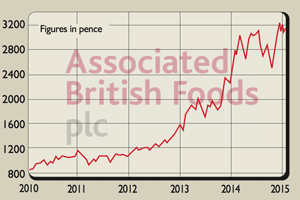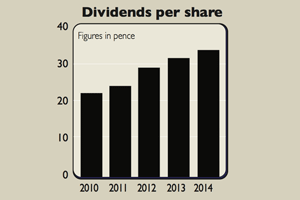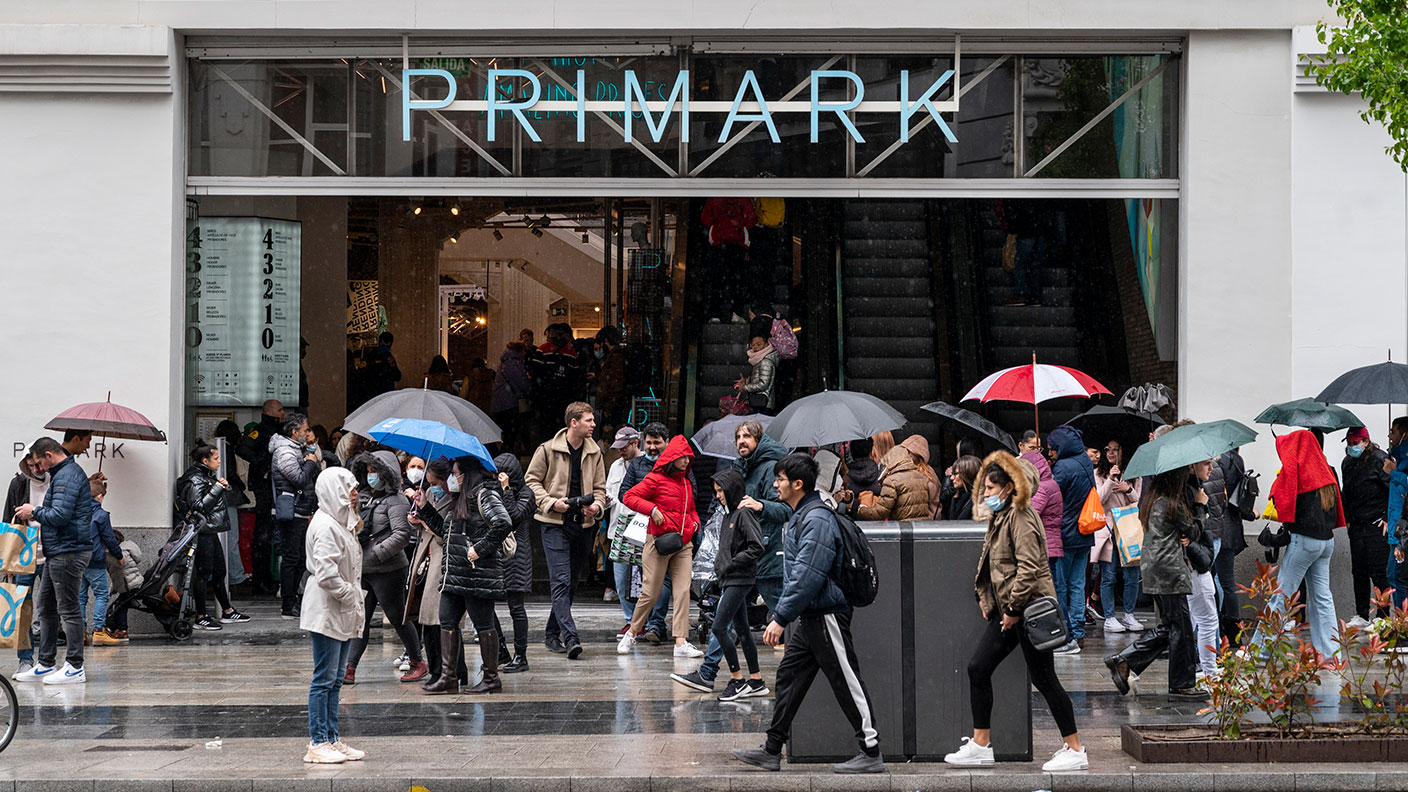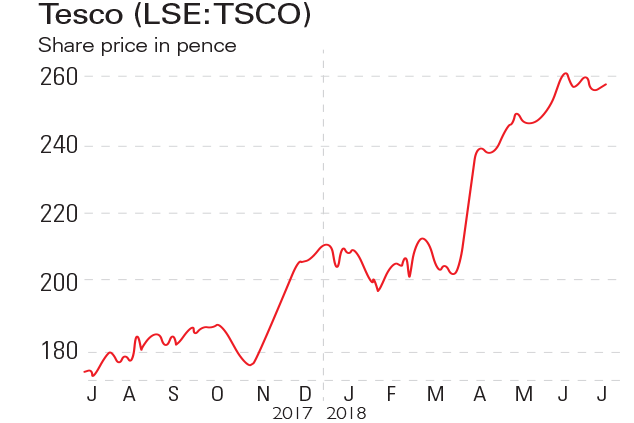Shares in focus: Associated British Foods - the conglomerate baking many profit pies
Associated British Foods is a great business. So should you buy the shares? Phil Oakley investigates.
Get the latest financial news, insights and expert analysis from our award-winning MoneyWeek team, to help you understand what really matters when it comes to your finances.
You are now subscribed
Your newsletter sign-up was successful
Want to add more newsletters?

Twice daily
MoneyWeek
Get the latest financial news, insights and expert analysis from our award-winning MoneyWeek team, to help you understand what really matters when it comes to your finances.

Four times a week
Look After My Bills
Sign up to our free money-saving newsletter, filled with the latest news and expert advice to help you find the best tips and deals for managing your bills. Start saving today!
ABF is a great business, but its shares look a bit rich for me, says Phil Oakley.
Associated British Foods looks a lot like a family-owned conglomerate, with its fingers in many pies. The company was founded by a Canadian, Garfield Weston, back in 1935. Today the Weston family still owns 54% of ABF's shares, as well as other business interests, such as the up-market department stores Selfridges and Fortnum & Mason.
The company started out as a bakeries business, but has spread its wings to become one of Britain's most prominent food companies, with divisions operating in almost every part of the supply chain.
MoneyWeek
Subscribe to MoneyWeek today and get your first six magazine issues absolutely FREE

Sign up to Money Morning
Don't miss the latest investment and personal finances news, market analysis, plus money-saving tips with our free twice-daily newsletter
Don't miss the latest investment and personal finances news, market analysis, plus money-saving tips with our free twice-daily newsletter
It still makes flour and sells well-known brands of bread, such as Kingsmill, Sunblest and Allinson, and other big brands, such as Twinings teas, Ovaltine, Ryvita and Jordans cereals.
It also supplies ingredients to restaurants and wholesalers and makes and sells animal feed to farmers. On top of that it is the UK's biggest producer of sugar, and has sugar businesses in Africa and China.
However, in recent times the company's fortunes (and its share price) have become increasingly dependent on a completely different business that of value-for-money retail chain Primark. This business has become something of a phenomenon in the UK and, increasingly, in Europe.
You can see what I mean when you look at the share price chart above right. ABF has been a great share to own over the last few years, even though overall performance has been solid, rather than stellar. During the last ten years, ABF has increased its earning per share (EPS) at an average rate of 8% a year.
Over the same period, the price of its shares has increased almost fourfold. In short, investors have been prepared to pay more for its earnings driving up the price/earnings (p/e) ratio for the shares. At nearly 30 times 2015 expected EPS, ABF is one of the most expensively rated companies in the FTSE 100.
History tells us that companies are rarely worth this kind of valuation. It would seem that investors are betting that Primark will keep growing strongly for many years. If it can, then ABF's shares might be worth the current price. But if it can't, then it's hard to see how anyone buying today could make much money.
The outlook
The big headache at the moment is the sugar business. In 2012, this business made £510m in profit (although this looked unsustainably high at the time) and accounted for half of ABF's total trading profits. But some City analysts think the business will make hardly any money at all in 2015.
Sugar prices in the European Union have plunged as producers have flooded the market ahead of a change in EU quota rules in 2017. Hopefully things should not get anyworse after this year. But the bottom line is that ABF's EPS will fall slightly in 2015. This makes ABF's current high valuation look even more perplexing.
Elsewhere, the grocery business isdoing well, with sales of Twinings and Ovaltine growing nicely. But as far as the future prosperity of shareholders is concerned, it's really all about Primark. So just how big and valuable can this business become?
Primark is already an outstanding business. Its success has been built on being quick to spot trends and to offer the latest fashions at fantastic prices. It doesn't advertise, buys in bulk, has low overheads and keeps its shops well stocked.
During the last three years the business has caught fire and profits have more than doubled. In 2014, it had sales of £5bn and profits of £662m, which equated to a great return on capital employed (ROCE) of 33.2%.
The challenge is for Primark to keep on growing while maintaining this sort of ROCE. It currently has 287 stores and 10.7m square feet of selling space it's going to have to open up a lot more shops and also keep sales and profits growing in the existing ones.
ABF certainly has big plans for the business. It has been expanding across Europe, and so far this is going well, even in countries where the economy has been weak, such as Spain. A recent move into France has also been a great success. The company plans to announce a further expansion next year.
This year will also see Primark enter the American market for the first time, with eight stores being opened in the northeast of the country. It will be interesting to see whether the low-price fashion model can be a hit there. If it is, then Primark may be able to succeed where other British retailers have failed miserably.
In short, this is a very good business, and if you were to ask me whether I'd like to own a slice of Primark and ABF's grocery brands, I wouldn't hesitate to say yes. However and this is the key for any investment not at any price. ABF's share price is way too rich for me at the moment and seems to take Primark's future success as a given.
The problem with this situation is that there's no room for disappointment so there's no all-important margin of safety in buying the shares at the current price. To me, the downside risk looks too big, whereas the upside potential looks fairly small.So the share price needs to come down a lot before I would buy in.
Verdict: put on your watchlist
Associated British Foods (LSE: ABF)


Directors' shareholdings
Get the latest financial news, insights and expert analysis from our award-winning MoneyWeek team, to help you understand what really matters when it comes to your finances.
Phil spent 13 years as an investment analyst for both stockbroking and fund management companies.
-
 Should you buy an active ETF?
Should you buy an active ETF?ETFs are often mischaracterised as passive products, but they can be a convenient way to add active management to your portfolio
-
 Power up your pension before 5 April – easy ways to save before the tax year end
Power up your pension before 5 April – easy ways to save before the tax year endWith the end of the tax year looming, pension savers currently have a window to review and maximise what’s going into their retirement funds – we look at how
-
 How to profit from rising food prices: which stocks should you invest in?
How to profit from rising food prices: which stocks should you invest in?Tips Food prices are rising – we look at the stocks to avoid and the one to invest in this sector.
-
 It might confuse the market, but Associated British Foods is a buy
It might confuse the market, but Associated British Foods is a buyTips Associated British Foods is a unique firm: half food producer, half fashion retailer. That confuses the market, says Rupert Hargreaves, but its diverse nature can give the company strength.
-
 If you'd invested in: Tesco and Associated British Foods
If you'd invested in: Tesco and Associated British FoodsFeatures Tesco has seen its market value rise almost 50% in a year, while AB Foods has seen shares slide despite a rise in profits.